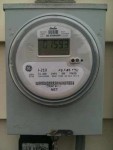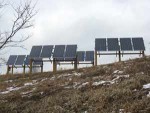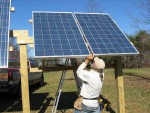- Share on Facebook
- Like
- Digg
- Tumblr
- VKontakte
- Buffer
- Love This
- Odnoklassniki
- Meneame
- Blogger
- Amazon
- Yahoo Mail
- Gmail
- AOL
- Newsvine
- HackerNews
- Evernote
- MySpace
- Mail.ru
- Viadeo
- Line
- Comments
- SMS
- Viber
- Telegram
- Subscribe
- Skype
- Facebook Messenger
- Kakao
- LiveJournal
- Yammer
- Edgar
- Fintel
- Mix
- Instapaper
- Copy Link
- Bluesky
There is one thing that repealing the WV Alternative and Renewable Portfolio Standard (SB1), legislation limiting flexibility in the creation of a State Clean Power Plan (HB2004 / SB4), and mandating that state DHHR, DNR, DEP rules are no more stringent than federal rules (HB2269) have in common. They are priority bills at the top of the 2015 Legislature’s agenda, closing doors for opportunities in innovation and entrepreneurship.
On Wednesday, January 28th, 2015 Generation West Virginia will be holding a day at the legislature and will be recognized during the House and Senate floor sessions during a day of panels and keynote speakers. As senators and delegates recognize the group of young professionals this week they should be empowered to consider the group’s message regarding innovation and entrepreneurship:
“We’re an impact generation, drawn to social enterprise and a triple bottom line, eager to solve complex problems with new technology, ideas, and creativity. West Virginia has some complex problems of our own that could benefit from the entrepreneurial minds of this generation. But many leave the state due to a perception that West Virginia is not open to change, to innovation, to new ideas and solutions.” [7]
Senators and Delegates from both parties should embrace that they have constituents “eager to solve complex problems.” Instead of empowering the WVDEP and PSC to partner with young innovators and entrepreneurs in the state to come up with new and creative solutions, they are restricting the agencies’ flexibility through SB1/HB2001, SB4/HB 2004, and HB2269.
Without SB4/HB2004 or SB1/HB2001, the WVDEP and PSC could begin the process of developing a state plan under the proposed EPA Clean Power Plan early on, creating an opportunity to involve many creative and innovative stakeholders with ideas as to how compliance can best be achieved with the interests of the state as a number one priority. The passage of those bills stalls, delays, and complicates the process for development of those plans, risking deadlines not being met and resulting in a less flexible federal plan.
Without HB2269 the WVDEP could spend its time adopting new rules that would require West Virginia streams to exceed federal standards encouraging the development of new technology, methodologies and solutions for reversing and preventing pollution.







